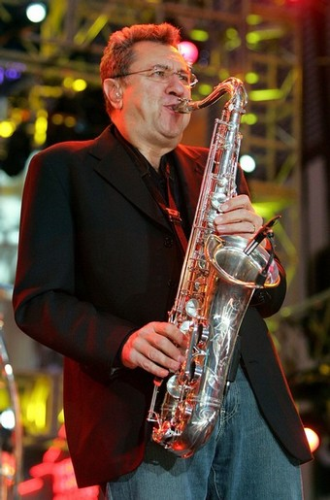May 19, 2008
DePaul University Law School Launches Legal Clinic that Offers Representation to Those Charged with Misdemeanor Crimes
The DePaul University College of Law has launched a clinical program designed to serve the community while offering students the opportunity to gain real-life legal experience by representing clients accused of misdemeanor crimes. With the addition of the Misdemeanor Clinic, the College of Law will sponsor eight clinical programs for individuals in need of legal help.
“Our clinical programs are one of the most valuable and accessible tools we can offer students to help them put into real-life context many of the skills they learn in the classroom,” said Glen Weissenberger, dean of the College of Law. “The Misdemeanor Clinic, along with our criminal appeals and death penalty clinics, will allow the law school to offer a full range of criminal defense services to those most in need.”
The Misdemeanor Clinic offers free legal assistance to indigent clients who have been charged with misdemeanors. Generally, a misdemeanor is a lesser criminal act that is punishable by incarceration for a year or less. The need for affordable representation in misdemeanor cases is evident. According to the most recent statistics available through the Illinois Criminal Justice Authority, in 2002, nine percent of the court cases filed in Illinois were for misdemeanor offenses. The number of cases filed for misdemeanor offenses in Cook County increased by three percent between 1990 and 2002. And, 77 percent of the misdemeanor cases filed in Illinois were filed in Cook County in 2002.
Students who participate in the Misdemeanor Clinic assume responsibility for every aspect of client defense under the supervision of the clinic’s director. They conduct client interviews, investigate cases and provide direct representation for clients, among other things. The clinic will serve between 16 and 24 clients annually, and it will be open to an estimated 25 students each academic year.
“The need to provide quality legal representation for those accused of misdemeanors is just as critical as it is for those accused of felonies because a person’s liberty, reputation and finances can be threatened,” said Cynthia W. Roseberry, who directs the clinic. “Through the clinic, students will learn criminal defense law in the most practical setting available—representing actual clients.”
Roseberry brings years of experience in criminal defense to the clinic’s directorship. A seasoned litigator who also is on faculty at the Bill Daniel Trial Advocacy Program and the National Criminal Defense College, both in Georgia, Roseberry has tried felony cases in both federal and state court. Prior to coming to DePaul, she taught for the State Bar of Georgia, Georgia Indigent Defense Counsel, Wisconsin Trial Skills Academy, National Association of Criminal Defense Lawyers, Georgia Public Defenders Standards Council, District of Columbia Public Defenders and the Rainbow/Push Coalition.
The Misdemeanor Clinic joins the College of Law’s asylum/immigration, civil rights, criminal appeals, death penalty, family law and technology/intellectual property clinics as well as its newly established special education advocacy clinic. All follow a long DePaul tradition of education through service and community-based service learning.
Established in 1912, DePaul’s College of Law is ranked among the top 100 law schools in the country by U.S.News & World Report. It enrolled 1,024 students for the 2007-2008 academic year, and boasts nearly 12,000 living alumni. Graduates of the College of Law include state and federal judges, municipal, county and state leaders and two generations of Chicago mayors.

DePaul Misdemeaner Clinic Director Cynthia Roseberry.

Walter Parazaider, one of the founding members of the rock group Chicago, will receive an honorary degree from DePaul's School of Music June 14.
